Is it ethical or wise to quarantine returning health workers?
Listen-
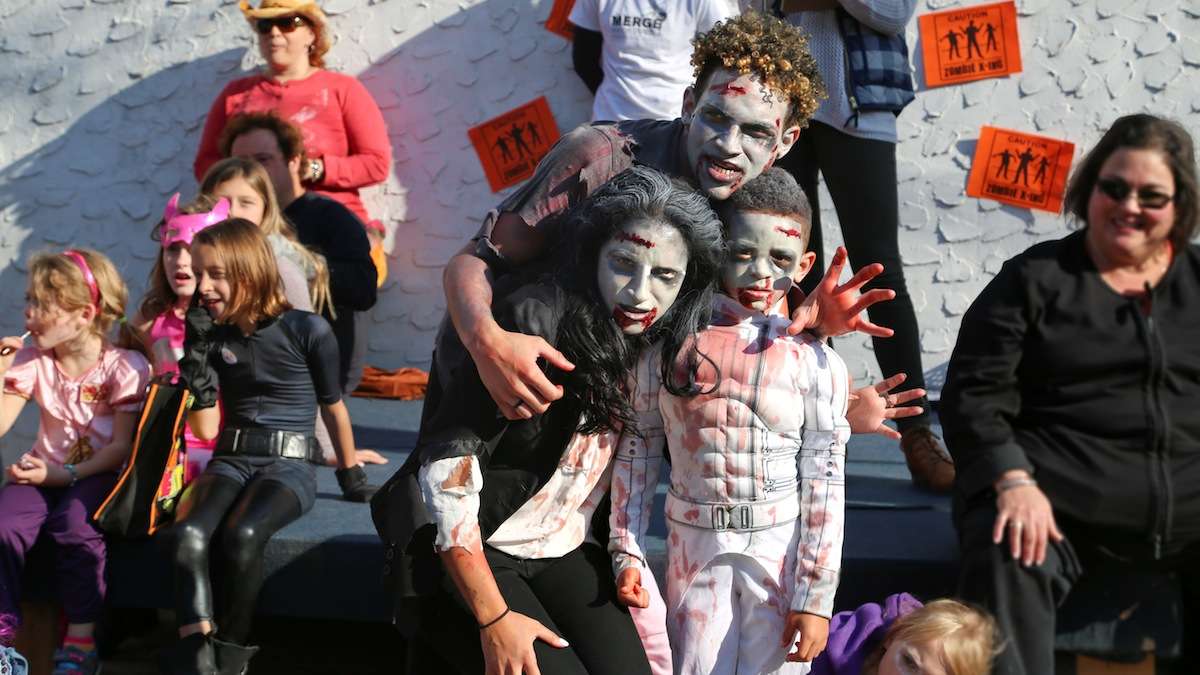
Zombie Thriller Dance Off winners Erik and Erika Coley with their little zombie Ryder. (Natavan Werbock/for NewsWorks)
-

Zombies took over Cotton Street lurching out with eerie dance moves for a chance to win a $100 cash prize.(Natavan Werbock/for NewsWorks)
-
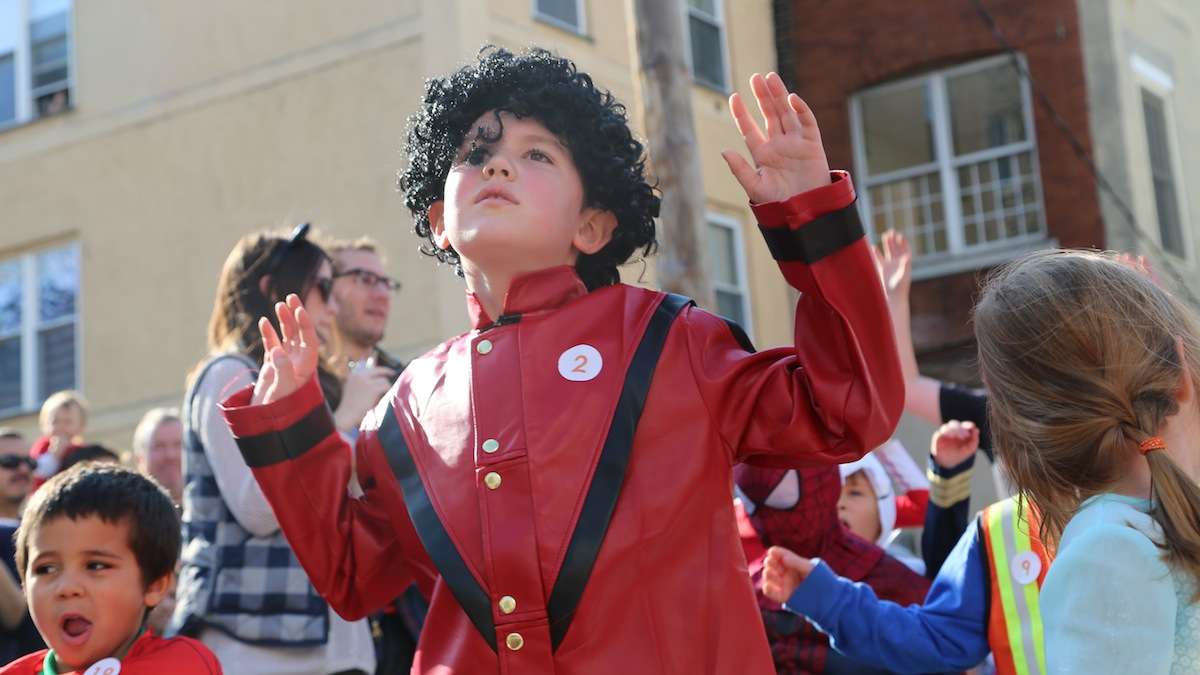
(Natavan Werbock/for NewsWorks)
-

Christa Campbell from Merge Dance Studio teaching kids the moves to Michael Jackson's hit 'Thriller.' (Natavan Werbock/for NewsWorks)
-
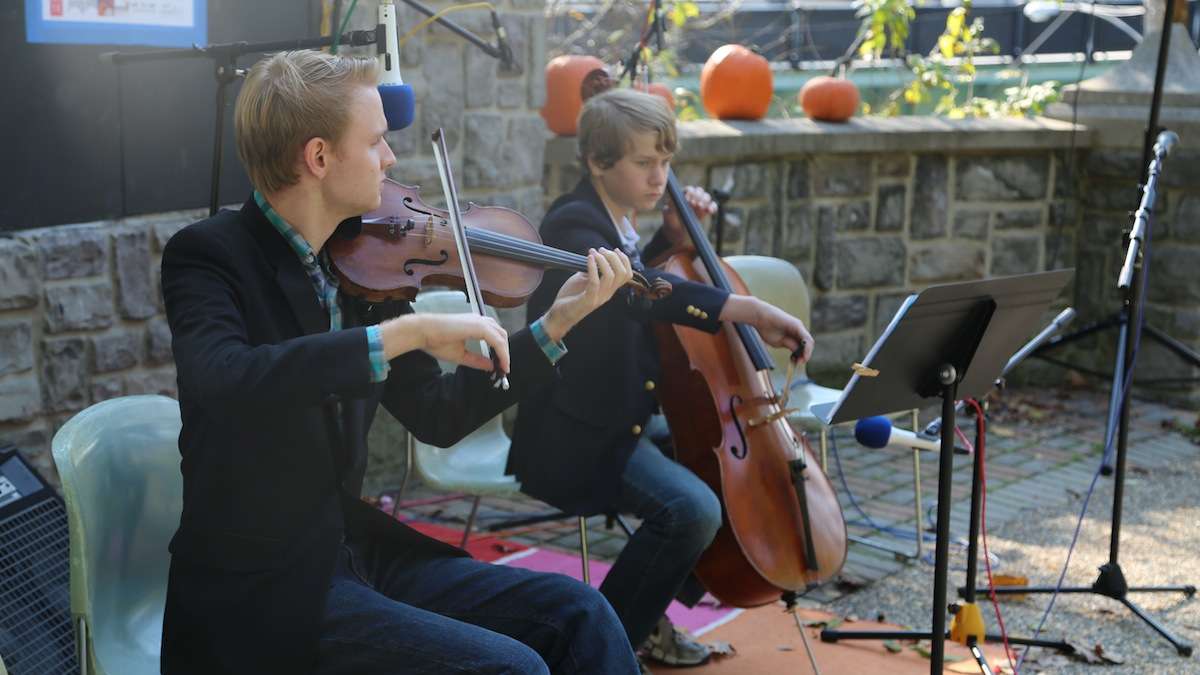
The Bolding Brothers duo performing simple, sweet harmonies in Pretzel Park. (Natavan Werbock/for NewsWorks)
-

The Pretzel Park Farmers Market offered fresh and seasonal produce. (Natavan Werbock/for NewsWorks)
-
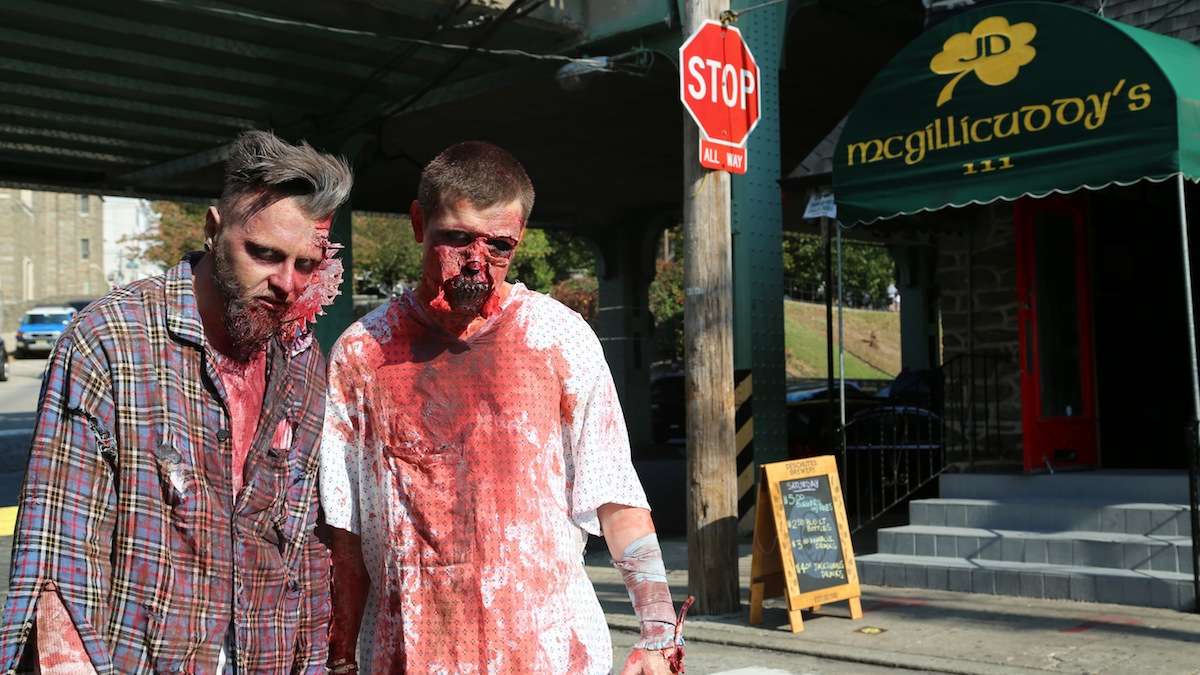
Zombie buddies on their way to McGillicuddy's (Natavan Werbock/for NewsWorks)
-

Fairy Regan Riley says her favorite part of Halloween in Manayunk is getting candy. (Natavan Werbock/for NewsWorks)
-

Superheroes Cloe and Germaine Lewis strike a pose while trick-or-treating on Main Street. (Natavan Werbock/for NewsWorks)
-

(Natavan Werbock/for NewsWorks)
-
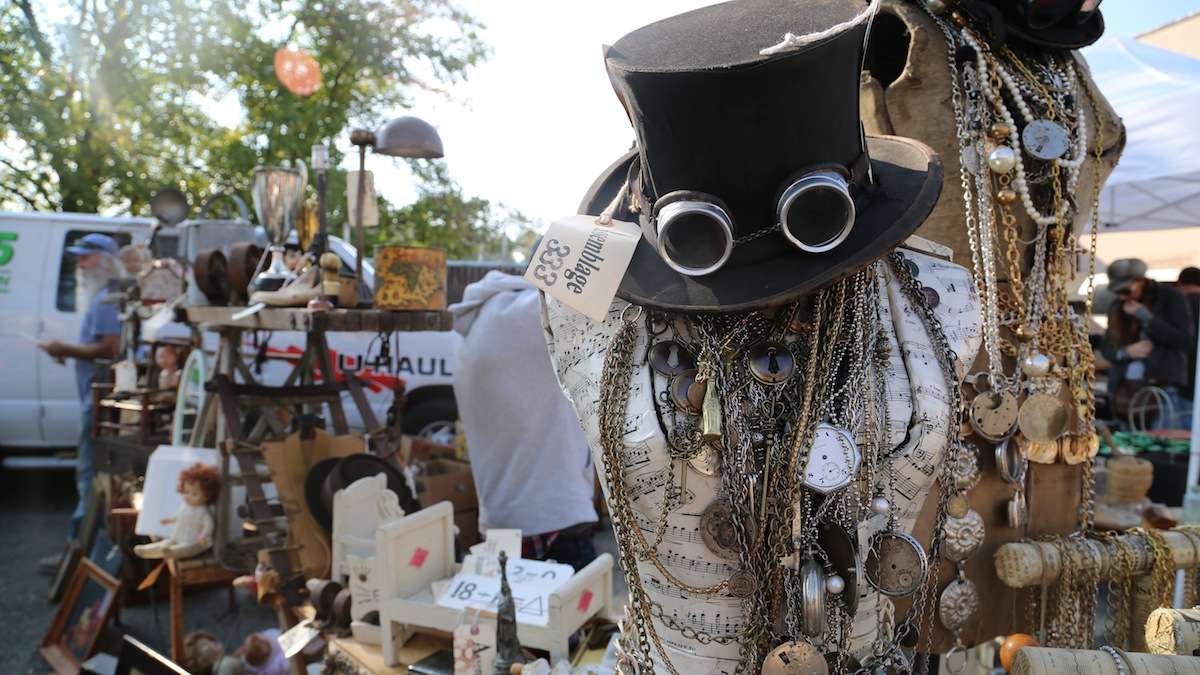
This year's flea market selection had some one-of-a-kind eclectic collection of items (Natavan Werbock/for NewsWorks)
-
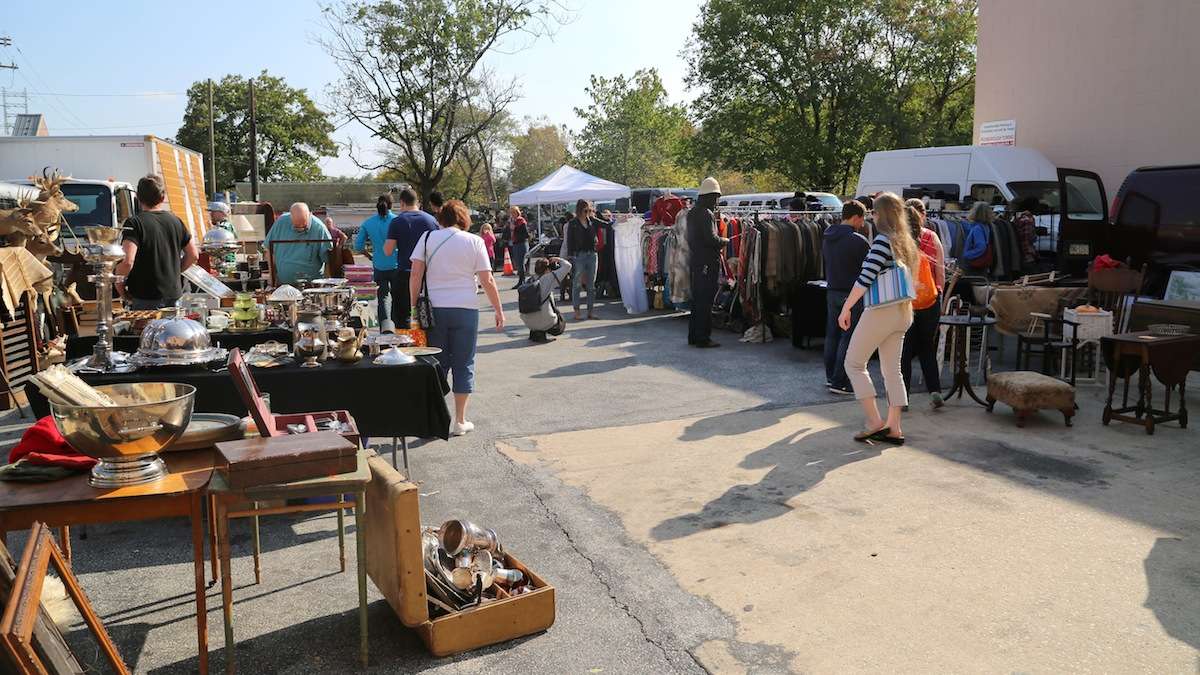
Philadelphia Flea Market spread along Main Street from Rector to Lock streets. (Natavan Werbock/for NewsWorks)
After sitting in quarantine in New Jersey over the weekend, nurse Kaci Hickox is on her way home to Maine after a humanitarian trip to Sierra Leone to care for people with Ebola.
Gov. Chris Christie says New Jersey took the right steps to protect public health.
“She was obviously ill enough that the CDC and medical officials hospitalized her and gave her an Ebola test,” Christie told reporters Monday afternoon. “They don’t do that just for fun.”
That account is at odds with the story Hickox told The Dallas Morning News. She wrote that she was physically fine, and had no fever when she was first detained Friday at Newark Airport. When officials took her temperature a second time, a forehead scan registered 100, but Hickox says that was hours later after she was questioned like “a criminal,” and had become flushed and upset.
Officials transported the 33-year-old to a New Jersey hospital where she spent the weekend in an unheated tent.
Medical ethicist Art Caplan has a different vision for how to treat health workers now home after a trip to fight Ebola.
“Why don’t we offer them full pay for 21days, let them stay in a nice place, last I looked there were a lot of empty hotels in Atlantic City. Treat them like heroes,” Caplan said. “Give ’em nice food, honor their service.”
The science doesn’t support forced quarantine for people with no symptoms, he said. In a recent essay he argued that quarantine is often problematic.
“What are we going to do? Are we going to shoot you on sight, are we going to Taser you? Are we going to put a cop in a moon suit outside your doorway?” he asked. “What I’m saying is that quarantine requires cooperation.”
For weeks, doctors and health officials have said the spread of Ebola requires very close contact with blood or body fluids. But given some early communications missteps — and seeming bravado before two nurses contracted the virus in Texas — Caplan says he understands why that message isn’t sticking.
“I think that left a really distrustful atmosphere around public pronouncements, official announcements,” he said.
Infectious-disease physician Esther Chernak says quarantine is an important public health tool that should be used judiciously for the right disease, such as efforts to curb respiratory infection.
“Like tuberculosis or even measles that are much more easy to spread. And I think it’s more important to save quarantine and use quarantine for those situations when it’s needed, and not when it really has no public health contribution to make,” said Chernak, a professor with Drexel University School of Public Health.
Caplan and Chernak said health workers who serve in Ebola affected countries are the kind of people that can be trusted to be diligent about health monitoring.
“I’d rather rely on that than quarantine, and I think the governors are finding out that too,” Caplan said. But Gov. Christie said he expects other states—and the federal government—to eventually follow New Jersey’s lead.
Chernak says unnecessarily restrictive rules could discourage other aid workers, and ultimately undermine efforts to halt the epidemic abroad. She says the current debate is a good opportunity for public health people to “show their work” to others.
“There are regulations in every county and state that restrict people with active salmonella (and other gastrointestinal) infections from working as food handlers while they’re infectious,” she said. “This isn’t ‘quarantine’ per se, but an example of when and how the use of public health police powers are needed to protect the health of the public. Individuals exposed to Ebola patients who are not symptomatic do not pose a risk to the public, so don’t require public health police action to confine them.”
She said in discussions about prudent public safety measures it’s important to distinguish ‘isolation’ from ‘quarantine.’
According to the Centers for Disease Control and Prevention, “isolation applies to persons who are known to be ill with a contagious disease.” “Quarantine applies to those who have been exposed to a contagious disease but who may or may not become ill.”
In an emailed statement Doctors Without Borders/Médecins Sans Frontières said:”Diligent health monitoring of returnees from Ebola affected countries is preferable to coercive isolation of asymptomatic individuals.”
“There are other ways to adequately address both public anxiety and health imperatives, and the response to Ebola must not be guided primarily by panic in countries not overly affected by the epidemic,” said Sophie Delaunay, executive director of MSF-USA.
WHYY is your source for fact-based, in-depth journalism and information. As a nonprofit organization, we rely on financial support from readers like you. Please give today.

